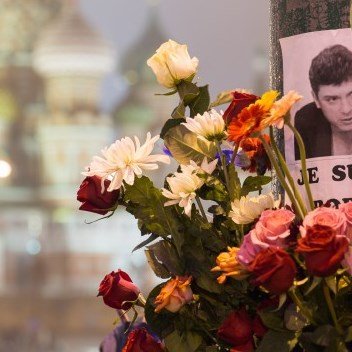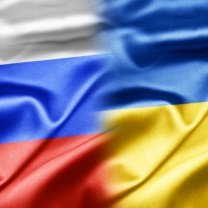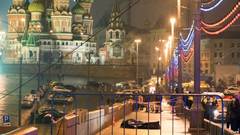(UT Blog) Words kill. Discourses matter.
Whoever physically triggered the gun that killed Boris Nemtsov, one of the most charismatic Russian opposition leaders in Moscow, his death on February 27th was definitely a result of Putin’s provocative invectives against “the fifth column”, “foreign agents”, “national traitors” and “enemies of the people”. The murder was politically prepared and justified before it happened in reality. At some point the boundary between giving a direct order and passively observing how others interpret your accusatory words is blurred.
Unfortunately, there is nothing new about political murders during Putin’s presidency: Anna Politkovskaya, Alexander Litvinenko, and now Boris Nemtsov. These assassinations once again confirmed how sovereignty in Russia is installed – as Michel Foucault would have said, not through encouraging people to live, but mainly through taking their lives, in Ukraine and within Russia itself.
Perhaps it makes sense to recall that a few years ago an obscure worker from the provincial city of Nizhny Tagil, Igor Kholmanskikh, suggested in a live TV show with Putin that he and his pals could help in “tackling all those protesters by their own means, if the police can’t manage it”. The result? From his native factory, “Uralvagonzavod”, Kholmanskikh was soon promoted to the post of presidential representative in one of the federal districts.
Yet this was only the beginning. After the annexation of Crimea and Russia’s hybrid war against Ukraine, Putin opened the circle of his most ardent supporters – and defenders, if needed – to even more dubious personalities, such as a “night biker” nicknamed Khirurg (The Surgeon), who called for “one more Stalinist blow against fascism” in Ukraine and, consequently, against pro-Western opposition inside the country. In the meantime, people with a strong neo-fascist reputation, such as Alexander Dugin, darted from a relatively peripheral presence to the political mainstream. In a matter of months the Kremlin discourse was, in fact, colonized by people from the margins – like Ramzan Kadyrov, the head of Chechnya, who drastically increased his personal influence in Moscow due to his direct pledge to use thousands of his armed loyalists to defend Putin against his enemies elsewhere, in Ukraine or in Russia.
Still, there is something new in the killing that happened in Moscow last Friday. It was a filmed murder, which raises its political symbolism. It is, of course, not like in Viktor Pelevin’s anti-utopian novel SNUFF, where TV cameras are used both to kill and film people, but rather close to it.
A popular version says that Putin is the least interested in this murder, since Nemtsov was no threat to the regime. Rationally speaking, yes – perhaps. Yet the problem is that rationality more and more often fails to work in Russia, and it is Putin himself, mainly, who contributed to this. How rational is Russia’s policy of annexing Crimea and supporting military insurgency in Ukraine’s east? On most accounts it’s absurd and illogical, but it is real.
The outcome is tragic: the “Russian world” means war with Ukraine, and “national unity” means death to dissenters.
This post was originally published at UT Blog, University of Tartu.











